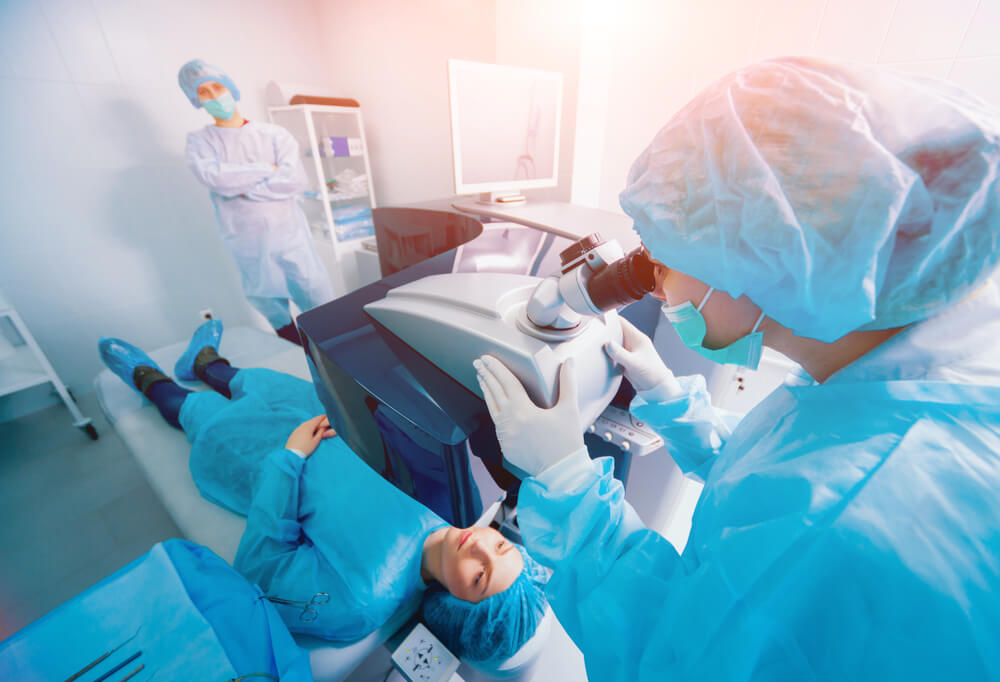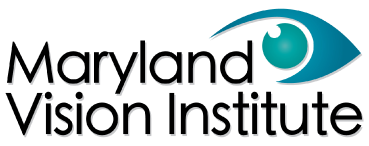Do I Need to Wear Reading Glasses Forever?
October 19, 2023
Some people love wearing glasses! They like how they look in them, may find them convenient and comfortable, and don't even mind constantly misplacing them!
Other people really do not like wearing glasses. They might struggle to find a pair that suits them, find they require constant cleaning, or pinch their nose.
They may find that they look forward to losing them so that they don't have to wear them! If you are one of those people who are in the anti-glasses camp, you may find yourself wondering if you will ever be able to get away from these visual aids.
Keep reading to learn if you have to wear reading glasses forever!
Why Do I Need Reading Glasses?
There are two common refractive errors that cause the need for reading glasses: hyperopia and presbyopia. These eye conditions cause objects or print in your close or near range of vision to appear blurry.

Hyperopia, which is more commonly known as farsightedness, can occur at any age. It can be corrected with prescription glasses or contact lenses.
Presbyopia usually occurs in older adults. Around age forty, many people start to see the signs of presbyopia as they begin to struggle to read texts or restaurant menus without having to hold them at arm's length.
People with presbyopia may opt for bifocals rather than having to deal with the hassle of taking glasses on and off to see clearly at all distances.
In the early stages of presbyopia, over-the-counter or prescription reading glasses are usually all a person needs to be able to read things clearly again.
Presbyopia is often progressive, meaning it is likely that your eyesight will worsen over time. You will likely find that you need stronger and stronger eye prescriptions in order to see clearly.
How Can I Ditch the Reading Glasses?
Eye surgery is the best way to correct refractive errors, giving you the possibility of living your life glasses-free! Which eye surgery is right for you depends on a number of factors, including the type of refractive error you have, the strength of your eye prescription, and the overall health of your eyes.
LASIK
If you have hyperopia, one of the most popular and successful treatments is LASIK. LASIK, which stands for Laser In-Situ Keratomileusis, is one of the most commonly performed eye surgeries and can be used to correct not only hyperopia but also myopia, also known as nearsightedness, and astigmatism.

During LASIK surgery, your LASIK surgeon numbs the eye area and then makes a tiny flap on the surface of the eye. This flap allows the surgeon to re-shape your cornea, restoring your vision.
The flap is then put back into place where it will quickly heal on its own. LASIK is a popular choice for correcting hyperopia because of the surgery's high success rates and overall patient satisfaction.
Additionally, it is a quick procedure with short recovery times.
Photorefractive Keratectomy (PRK)
If your eye doctor determines you are not a good candidate for LASIK, but you would still like to live life glasses-free, photorefractive keratectomy, or PRK can be another vision-correcting option. PRK can potentially correct hyperopia if you have thin corneas, large pupils, or a health condition that puts you at an increased risk of injury in the eye area.

During PRK, a laser is used to completely remove the epithelium, or cell layer, on the surface of the cornea. The cornea is then re-shaped and covered with a special contact lens that acts as a bandage to protect the eye while it heals.
While the results of PRK are comparable to LASIK, it can take your eye longer to heal due to the regrowth of the epithelium. Once your eye has fully healed, you can enjoy clear near vision without the need for reading glasses!
Refractive Lens Exchange
If you need reading glasses because of developing presbyopia, laser lens replacement is the best option to restore your near vision. While similar to the surgery used the treat cataracts, refractive lens exchange can resolve your presbyopia even if you have not yet shown the signs and symptoms of cataracts.
During refractive lens exchange, the natural lens of the eye is removed and replaced with an artificial intraocular lens (IOL). This artificial lens permanently corrects the refractive error that causes presbyopia, and depending on the IOL you choose and your vision needs, it can also correct your vision at multiple distances.
When you replace your natural lens with an IOL during laser lens replacement, you can be sure that you will never develop vision-impairing cataracts. This is because an artificial lens is not susceptible to the buildup of proteins that causes cataracts.
What If I Don't Mind My Reading Glasses?
If you are one of those people who love wearing glasses, we have you covered! At Maryland Vision Institute, we have a full-service optical center where you can find the perfect frames for your face and taste!

We can make those specs even better with advanced lens options and special lens coatings that can not only help you read clearly but also protect your eyes from harmful UV light!
If you dislike being dependent on reading glasses for your near vision, there are treatment options which can change your eyesight outlook! Whether you have hyperopia or presbyopia, we offer surgical treatment options that can have you glasses-free in no time!
Do you have more questions or concerns about reading glasses? Schedule an appointment at Maryland Vision Institute today!



